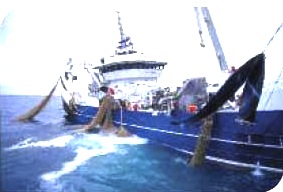Filipinos biggest non-European group in Scotland’s fishing fleet
SAN FRANCISCO – Only 72% of Scotland’s fishing workforce is Scottish, and the largest in-flow of workers was from the Philippines, Ghana, Romania and Latvia. This is according to the second Scottish government survey of employment on the fishing fleet.
From outside Europe, 15% were from the Philippines and 3% from Ghana. More than 8% said they were from the European Economic Area. Of them, nearly half were from Romania and 3% from Latvia, according to a report by BBC News.
Filipinos are largely engineers and deck hands.
The nationality of workers in the fishing fleet raises questions over whether there are enough people with the skills in Scotland to replace foreign workers after Britain withdraws from the European Union.
Article continues after this advertisement
A government official recently raised concerns that Hebridean boats were unable to put to sea because of a shortage of work visas for the necessary crewing.
Article continues after this advertisementThe Filipino and Ghanaian crewmen need non-EU work permits, and many are recruited through agencies.
A significant number are required for their skills as ship engineers. In the survey of 753 skippers and crew, 67% said they were Scottish and one in 40 said his nationality was “Shetland.”
What fishermen are paid
Average gross earnings:
All vessels £31,200
Pots and traps, boat length 10m: £5,700
Pots and traps, boat length 10m: £20,200
Demersal/white fish, boat length 24m: £93,600
Demersal/white fish, boat length 24m: £116,500
Prawn trawler, boat length 18m: £22,300
Prawn trawler, boat length 18m: £48,300
Scallop dredger: £19,400
Source: Scottish government survey 2015
While workers from outside Scotland were more likely to be paid a wage or through an agency, three-quarters of those surveyed were part-paid by a share of the catch value.
The survey was carried out through quayside interviews during last year. It covered 222 vessels, or 15% of the registered Scottish fishing fleet.
